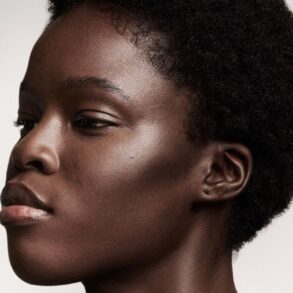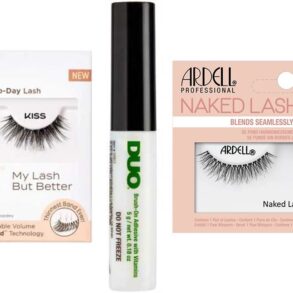
The films of Sofia Coppola are both loved and reviled for their use of the passive woman as protagonist. The protagonist of a film, according to mainstream screenwriting rules developed by men, should always be taking action to change their life. They should act and react on a momentous scale, and, if they are dissatisfied, the audience should see them take radical action to transform their psychological disunity into a state of contentment and self-understanding. Coppola, in her newest film “Priscilla,” rejects this notion in order to tell a story of a bored and lonely young girl who is found and acted upon by a narcissistic man, losing her entire sense of self to his idea of her in the process.
In conversation with men who have watched “The Virgin Suicides,” “Marie Antoinette” and “Priscilla,” I am often left with the response “I just couldn’t connect to any of the characters,” as if this inherently makes a film bad. However, Coppola is not making films intended for everyone to connect to; she writes stories that some will relate to, a larger population will enjoy the visual beauty of and an equally large population will find cold and uninvolved.
“Priscilla” explores two characters whose inability to understand themselves prevents the audience from ever fully accessing them. A 14-year-old Priscilla Beaulieu (Cailee Spaeny) meets Elvis Presley (Jacob Elordi) at a party after moving with her parents to a military base in Germany where her father is stationed. With no friends, Priscilla lives a life of boredom and loneliness. Elvis’s interest in her brightens the cold, gray world she inhabits. When he leaves her to go back to the United States, Priscilla yearns for that color to return to her life.
He eventually ships her out to his Graceland estate, where she becomes a half-prisoner, watched over constantly by Elvis’s father, Vernon (Tim Post). Her gray life returns as Elvis leaves to film movies in Los Angeles, and she is left with nothing to do but attend a strict Christian high school and play with the fluffy white dog he gifts her. Their relationship becomes increasingly abusive and controlling — Elvis won’t let Priscilla get a job as he wants her ready to answer the phone for him at all hours, he cheats on her constantly with Hollywood starlets and he throws a chair at her when she says that one of his songs isn’t very catchy.
Yet, despite all this toxicity, we understand why Priscilla stays with Elvis. When I spoke to other young women who watched the film with me, the relatability of Priscilla’s codependent emotional state became disturbingly apparent. Romantic relationships between men and women can be fraught with fear and anxiety on both sides, and this lack of understanding can lead to unhealthy attachments — attachments that young women hope, as Priscilla does, will remove the feeling of mundanity and “lack” from their lives. Boredom in young girls is showcased brilliantly by Coppola as a catalyst for young girls entering codependent relationships. Codependency negates the struggle that is creating one’s own identity and life in adolescence and instead creates a world where women can rely wholly on someone else for their happiness. Though we as the audience know this is not the answer, we see the blinding appeal of a man like Elvis infusing color into a dull life that, particularly within girlhood, can seem permanent.
“Priscilla” may also be the Coppola film most visually obsessed with this cold lack of color. It is seeped in gray mundanity and silent long moments of nothing, paired with the iciness of pretty 1950s femininity. The white, crystalline aesthetic of the costuming and set design is something I believe only Coppola could make look so melancholy yet serenely pure, illustrating Priscilla’s initial innocence and ultimate princess-esque captivity. Using a long depth of field in most of her wide shots, Coppola showcases Priscilla’s constant isolation from her surroundings, particularly within Graceland. The film relies on heavy shadowing on the faces of its characters to depict the couple’s drugged intimacy, while also highlighting their inability to ever truly understand each other. Shots of Priscilla primping and putting on makeup show our protagonist’s grooming by Elvis into a doll of his creation, as well as the nature of life for women in the mid-20th century.
In terms of performance, Elordi, as he does in Euphoria, demonstrates his incredible ability to play a narcissistic male while still looking like a heartthrob. His Elvis is less caricature than Austin Butler’s in Baz Luhrmann’s “Elvis,” more subdued charisma masking an anxious little boy trapped in a grown man’s body. His Elvis is also incredibly frightening, with his insecurity giving way to anger and violence at a moment’s notice, always ready to be cruel to the woman he loves if the mood strikes. Spaeny as Priscilla gives a beautiful performance of subtlety. Her face reveals little, but under Coppola’s direction, every repressed facial expression and word becomes a sign of her lack of independence and discomfort in her own home. Of course, there are happy moments of intimacy between the two characters, and we see that the love they had for each other, though warped, toxic and ultimately tragic, was something that sustained and lifted both of them up in many ways, as the real Priscilla Presley has said in interviews time and time again.
One of my favorite things about Coppola is that she refuses to condemn the lives that young women end up living because society sees them as taboo, unproductive or ultimately unhealthy. Yes, we can recognize that no one should be in a relationship like Priscilla and Elvis’, but there are so many heterosexual relationships that mirror their story, it would be ignorant to make a movie that simply caricatures codependency and tells women to be stronger. This is Priscilla Presley’s true story (based on her memoir Elvis and Me), a story that she doesn’t regret being her own and a story that many women can relate to. Priscilla eventually takes control of her life by divorcing Elvis, but we recognize that he has irreparably shaped her identity and the way she will view herself in the future. In this way, “Priscilla” is a tragic story of the way men exercise control over women when they are most vulnerable; the film stays true to its subject and audience by refusing to condemn women for giving into the appeal of this act, which promises, and for a time perhaps does, to save and enliven them.
There should be more female-directed movies that see the passive woman as worthy of being talked about. She has more to say than the men who want to control her would like to admit.
This post was originally published on this site be sure to check out more of their content.








